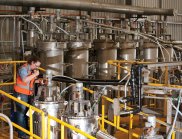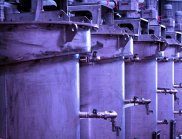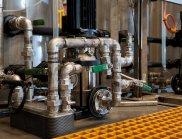New processing method to deliver huge benefits to global nickel industry
Full-scale testing of the process has commenced at a A$3.5 million pilot plant at CSIRO in Perth. The process, developed by Sydney-based company Direct Nickel, could deliver a huge boost to the global nickel industry by making millions of tonnes of untapped nickel laterite reserves economically viable to mine.
Russell Debney, Managing Director and CEO of Direct Nickel, says with the increasing demand for nickel, which is a key component of stainless steel, the future of the world’s supply lies in laterites.
“Many of these reserves remain untapped due to the difficulty and expense of extracting the nickel. Technical difficulties and the high costs of existing processing methods are massive and continuing roadblocks,” Mr Debney said.
“There is a desperate need for a solution to the laterite processing problem that is threatening world supply. Other forms of nickel reserves, such as sulphides, are running out and there are few new discoveries.”
Traditional processing techniques use large quantities of sulphuric acid at high temperatures and pressures, resulting in expensive treatment and disposal of chemical waste.
“This process has the potential to revolutionise the global industry. Australia has an abundance of nickel laterites, so it would provide a significant boost to our economy.”
Dr Dave Robinson, CSIRO mineral processing research leader
Dr Dave Robinson, leader of mineral processing research at CSIRO, says the new process uses nitric acid, over 95 per cent of which can be recycled and reused making it more environmentally friendly and lower in cost.
“This process has the potential to revolutionise the global industry. Australia has an abundance of nickel laterites, so it would provide a significant boost to our economy,” Dr Robinson said.
“We have been working in partnership with Direct Nickel for over three years and the pilot plant is an important step in understanding the process. It will provide the engineering data to validate our technical and economic predictions.”
Mr Debney said the set up and operating costs are less than half those of existing processes, and their process is more efficient in extracting the nickel from the laterite ores. It is also believed to be the first process capable of treating all laterite ores, which are inherently difficult to process.
“Initial full-scale testing has provided positive results. If we continue on this path, our processing method will be ready to roll out to industry as early as 2016,” he said.
This story is featured in the latest resourceful magazine, released today.
Media resources
Click image for high resolution version
Video: Nitric nickel – a new environmentally friendly processing method



